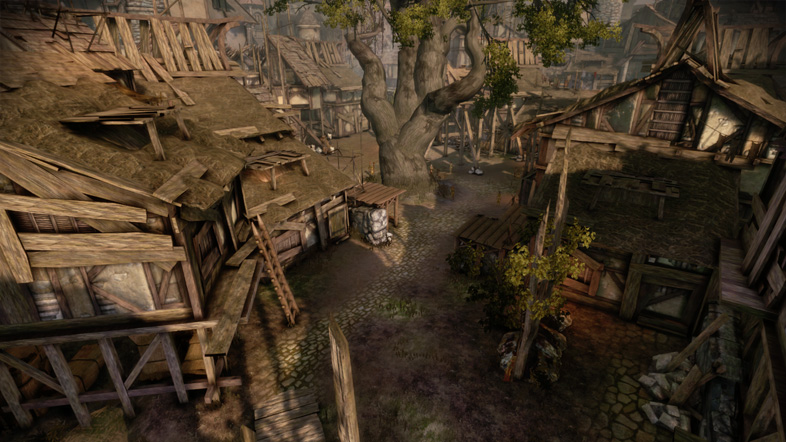Jews
have been represented in literature for over hundreds of years, with varying
degrees of racism. As we explored in the
age of Chaucer’s Prioress’s Tale,
Jews were often depicted as money oriented, dirty, and even violent murderers
who were susceptible to Satan’s charms.
Over the last few centuries, the racism has seen little improvement. Only seventy years ago, Jews were forced into
ghettos and concentration camps by Nazi Germany, based entirely on their Jewish
heritage alone. While this overt form of
anti-Semitism has not been seen on such a large scale in the modern era, city
elves in Bioware’s Dragon Age series
of video games reflect the plight Jewish people have dealt with since ancient times.
Unlike
Tolkien’s Lord of the Rings, where
elves are largely similar to one another, the elves in Dragon Age are defined by their geographical locations in the
continent of Thedas, where the game takes place. After the fall of their home city Arlathan,
elves were forced into slavery for many years.
During this time, the elves lost most of their cultural heritage and
identity. After attempting to rebuild their
civilization several times (and failing), their few numbers have been scattered
all over Thedas in either forests as primitive nomads, called the Dalish, or in
cities as impoverished outcasts. If you
choose to be an elf in the first game, Dragon
Age: Origins, human characters associate you with poverty, crime,
barbarism, and treat you with disgust.
They blame you for their troubles, and often expect you to find a proper
solution to fix it.
 |
| Vhenadahl Alienage |
Another
interesting component of the game is the difference between the Dalish elves
and the city elves. The Dalish elves,
though nomadic in nature, do not have to deal with the overt racism that the
elves in the cities must deal with. In
fact, in cities, elves are regulated to areas called “alienages”, where elven
people and cultures are allowed to exist.
Tall walls surround the alienages, and are guarded by corrupt officials
that the player must bribe to pass. In
some cities, these walls are so high that they block some sunlight and the rest
of the city, symbolizing their unworthiness.
Guards will ignore crimes that elves commit in favor of prejudice, and
elves may not experience traditional ceremonies (such as marriages) of their
own people. For many elves, going hungry
is natural, and they are all struggling to get by.
The
amount of detail Bioware put into the elven culture is remarkable, but much of
the elven plight is influenced by Jewish history. The conquering of Israel by Bablyon and Rome
led to hundreds of years of diaspora and slavery, just as the elves are
dispersed in the game. Their restriction
to Jewish ghettos, where racism, corruption, and starvation thrives is
represented in the elven alienage’s.
While I don’t think Bioware was attempting to solve the racism problem
that still exists for many cultures with the release of a videogame, the issues
present in the game do present the dilemma as a question: why does this racism
take place? What is racism like if it
affects you, the player?

No comments:
Post a Comment